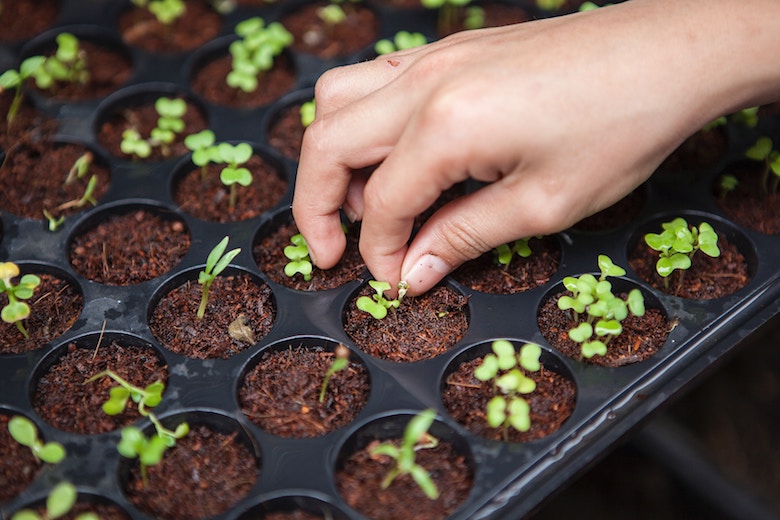
Just a couple of short weeks in to the Brooklyn Public Library (BPL)’s brand new seed library program, which opened for business on March 13, it ran out of seeds. “Once the awareness got out there, it was not too hard to give them away,” says Jesse Montero, director of the Central Library branch at Grand Army Plaza, indulging in understatement.
Hundreds of packets of tomatoes, peppers, eggplants, flowers, herbs were quickly snatched up by garden-happy Brooklynites eager to get planting—in their apartments, in the tree beds on their blocks, and in shared community plots. “We were excited by the response,” Montero says.
Seed libraries are a growing phenomenon across the country, a natural pairing, according to Montero, between locals and the actual physical public libraries that serve them. Seeds are “literally the seeds of other things that can happen: creating a sense of community through the joint endeavor of a garden, supporting health and nutrition through the growing of produce locally, beautifying neighborhoods and making them safer and more livable places,” Montero says.

The seed library at BPL, like non-profit seed libraries elsewhere, is partly enabled by companies looking to donate last year’s technically out-of-date seeds. Seed Savers Exchange in Decorah, Iowa, which annually donates 600,000 packets of seeds to some 800 organizations through its Herman’s Garden initiative, also sees this as a way to further its own goals—of getting heirloom seeds into as many hands as possible. “Our mission is to make sure these seeds are grown in many gardens, so the varieties continue to exist,” says Jeanine Scheffert, who oversees the company’s seed donation program. Other contributors to BPL are the Baker Creek Heirloom Seed Company, Burpee Garden Products Co., and High Mowing Organic Seeds.
Scheffert points out that parallel educational efforts, in which seed “lending” (a misnomer, since seeds aren’t usually returned) is supplemented with classes about how to plant, tend, harvest and seed-save, “are important to help those taking the seeds be successful in their endeavors.”
To that end, Montero says that BPL Central’s proximity to the Brooklyn Botanic Garden and Prospect Park—and the programming run in both places for community members of all ages—made its seed library a natural extension of the “great gardening ecosystem” around Park Slope and adjacent neighborhoods. He also hopes that community gardeners in need of a space to hold lectures, workshops and garden trainings “will start to see us as a resource” for these things.
Perhaps the best news of all: As of this writing, BPL, buoyed by its seed library’s success, had just purchased 1,500 new packets of seeds. Get them while they last!



